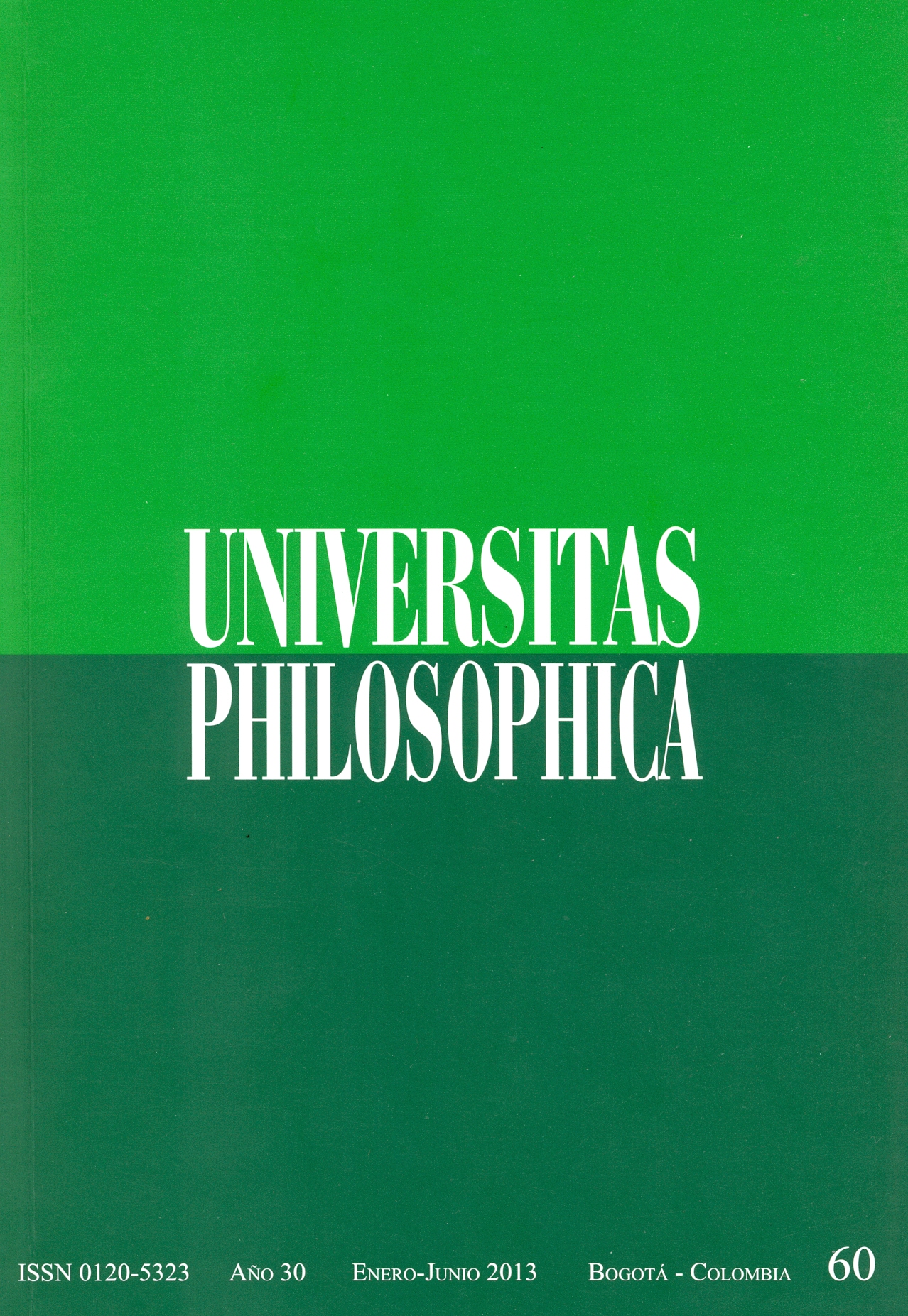Abstract
The aim of this paper is to present a critique of the conventionalist interpretation of the rule-following problem Saul Kripke holds in his book: Wittgenstein. On Rules and Private Language. To achieve this, we suggest a detailed reading of the paragraphs §§185-217 of Philosophical Investigations where it’s shown that there are cases when the meaning of the expressions “rule following” and “contravene” is not determined only by appealing to conventional criterion, as Kripke firmly declared. This interpretation allows us to state that while Wittgenstein accepts the importance of customs and institutions to correctly elaborate normative judgments, he also points the existence of a basic cross-conventional space –the human being space– which allows us to recognize normative attitudes happening in unconventional courses of action, and therefore, it becomes a support to emit normative meaningful judgments. As a result, and following our reading of §206 we are able to identify in the Wittgenstein’s rule-following statements that allow going from a purely conventionalist interpretation to an anthropological one.
This journal is registered under a Creative Commons Attribution 4.0 International Public License. Thus, this work may be reproduced, distributed, and publicly shared in digital format, as long as the names of the authors and Pontificia Universidad Javeriana are acknowledged. Others are allowed to quote, adapt, transform, auto-archive, republish, and create based on this material, for any purpose (even commercial ones), provided the authorship is duly acknowledged, a link to the original work is provided, and it is specified if changes have been made. Pontificia Universidad Javeriana does not hold the rights of published works and the authors are solely responsible for the contents of their works; they keep the moral, intellectual, privacy, and publicity rights.
Approving the intervention of the work (review, copy-editing, translation, layout) and the following outreach, are granted through an use license and not through an assignment of rights. This means the journal and Pontificia Universidad Javeriana cannot be held responsible for any ethical malpractice by the authors. As a consequence of the protection granted by the use license, the journal is not required to publish recantations or modify information already published, unless the errata stems from the editorial management process. Publishing contents in this journal does not generate royalties for contributors.


